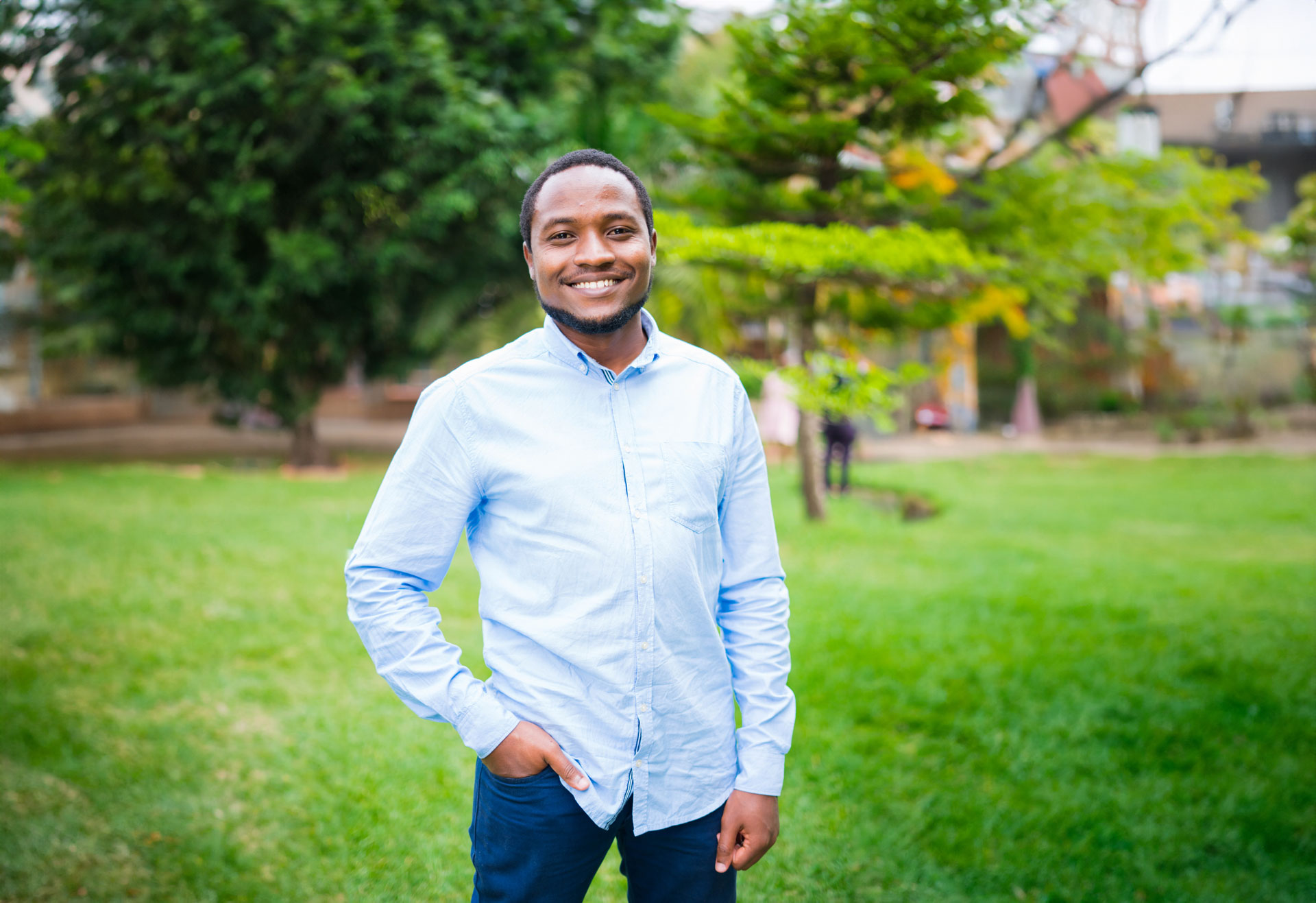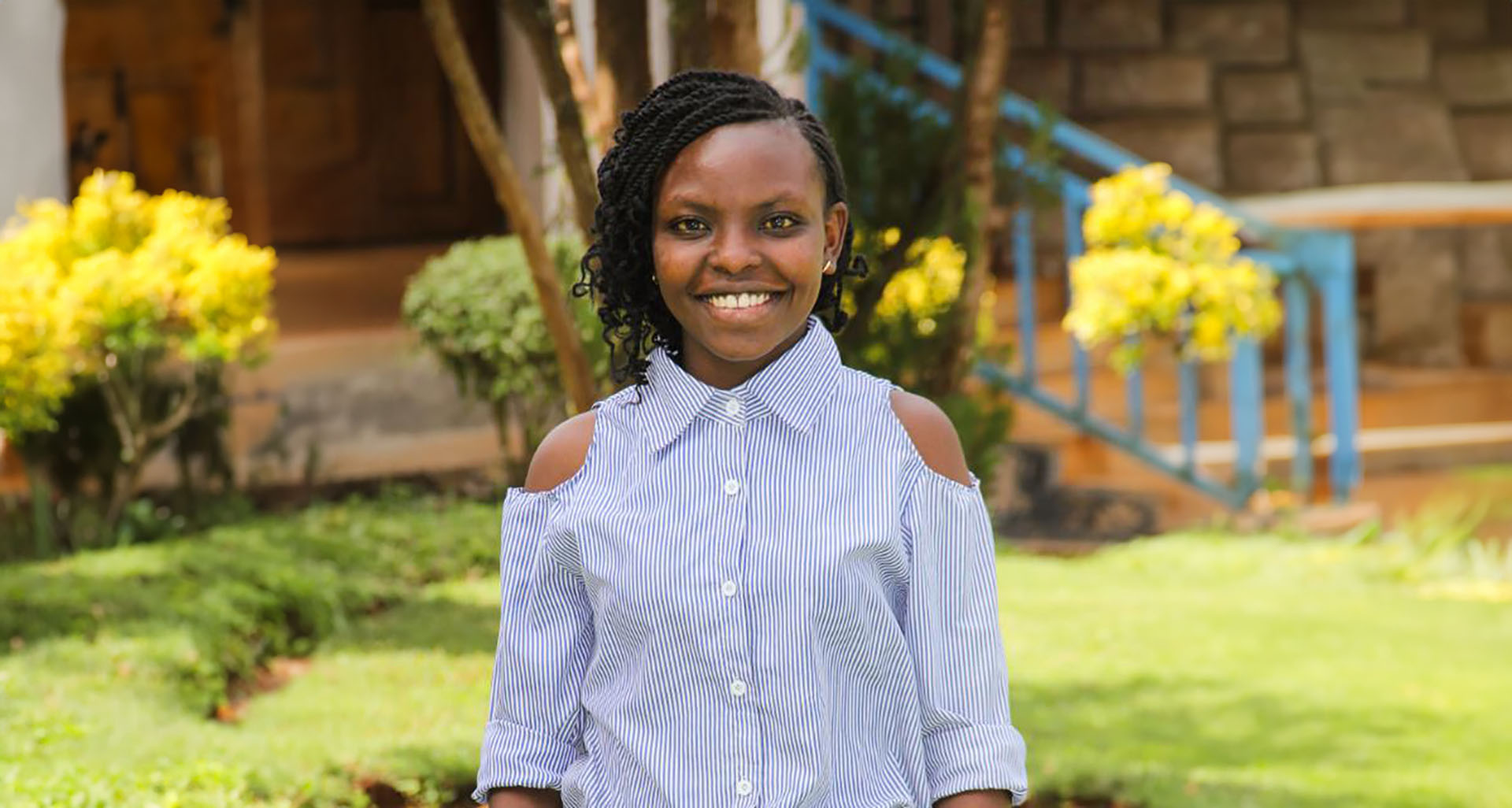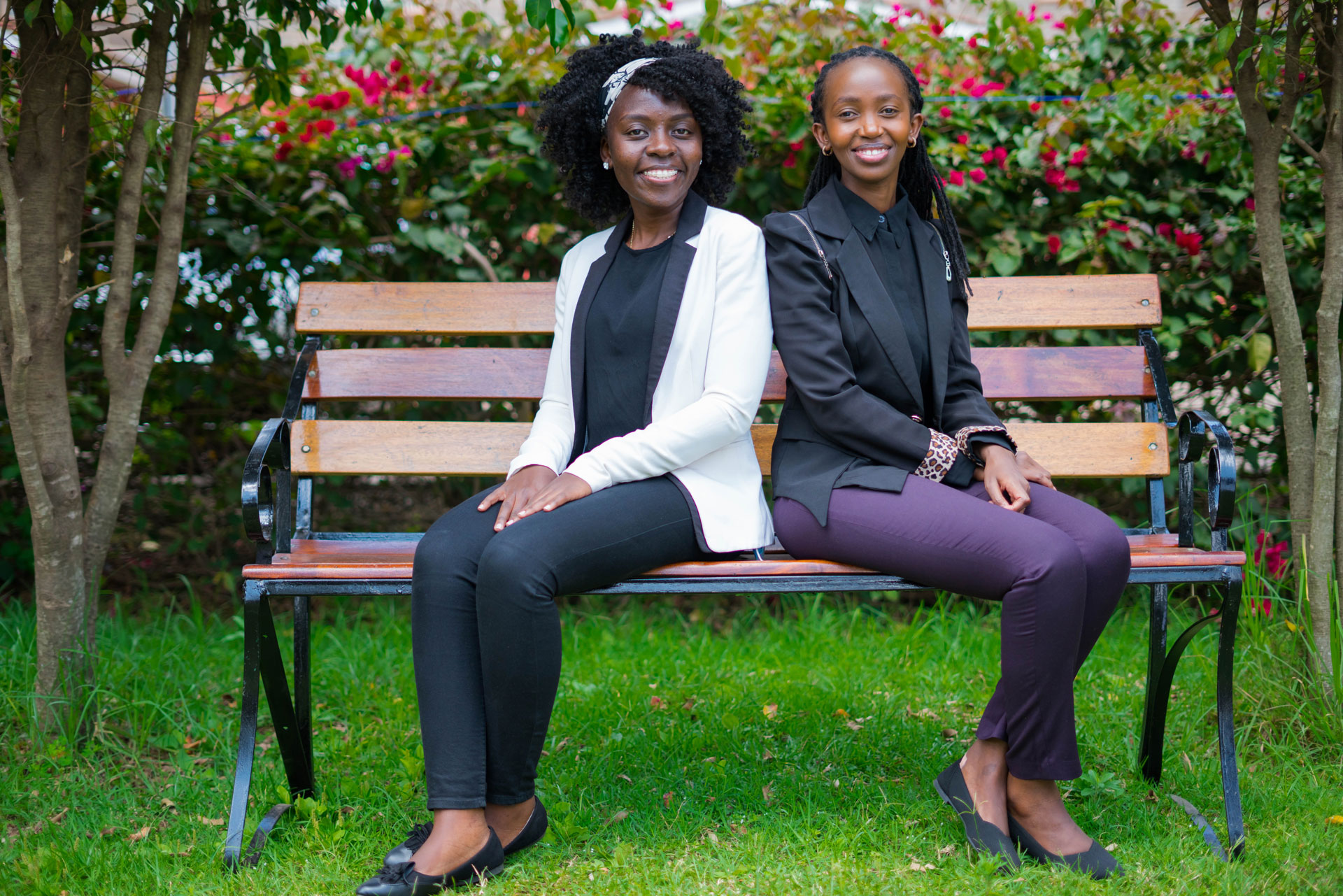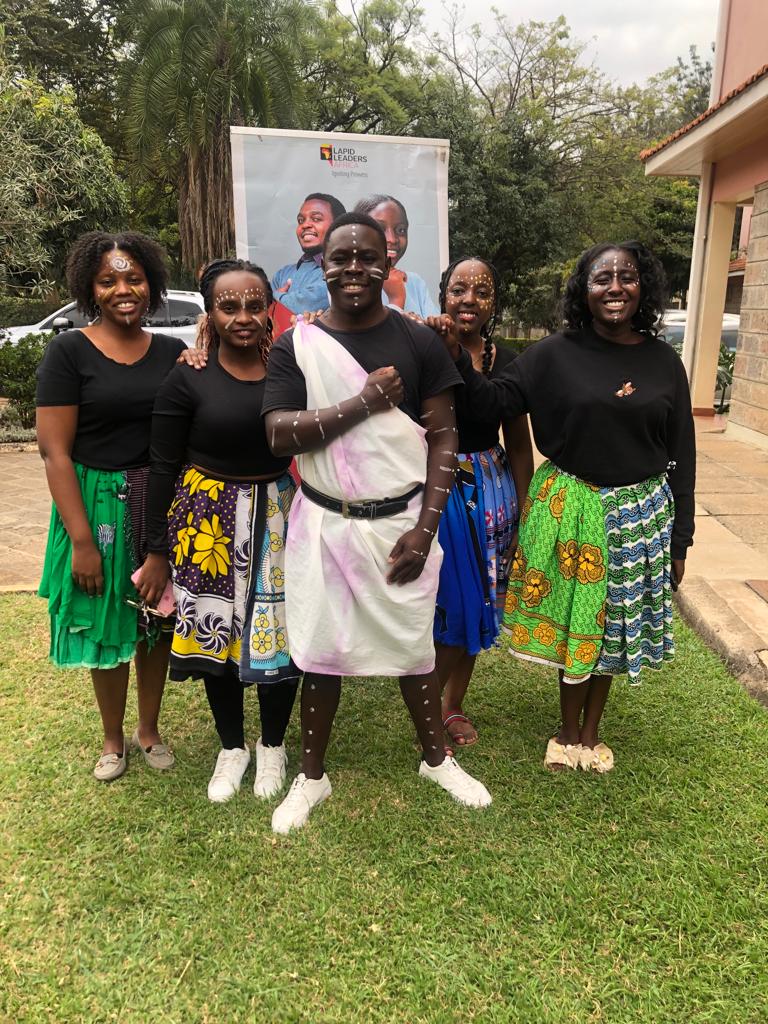Key Statistics
Company: AgriQ & Automations Ltd
Co-Founder: Dennis Chang’ach, 25 yrs
Registered: March 2018
Industry: Agribusiness – Technology
Employees: The founders
Services: Using technology to create hardware and software for mushroom farmers
Lapid Class: Cohort 6
The beginning
In September 2017, four engineering 5th year students brainstormed together for a project to present at the annual JKUAT Tech Expo. The shiny object for them was the prize money of KES 100,000 for the winner with KES 50,000 and 25,000 for the runners up which they aimed to split four ways. “I lived on a farm in Eldoret and having a lot of interaction with farmers in our community led me to research on cold storage.
We decided to come up with a simpler, cheaper solution that would integrate into existing technologies to solve the post-harvest losses encountered by farmers.” Chang’ach notes. They needed KES 30,000 to get the prototype done, so he decided to take his rent money and invest in the project. “What gave me the courage to take my rent money was the fact that at Lapid we were doing ‘Business Model Canvas’ and I knew that because we were all engineers competing at school the focus would be technical but a business aspect would give us an edge with the judges.” Two weeks to the competition they took the prototype to a ‘mama mboga’ near campus, who put in her tomatoes and vegetables for a test run. They took a video of her using the product and giving a positive testimonial. During the Expo, their stand had a lot of interest as they kept running the video on TV and were sure they had bagged the 1st prize. However, they ended up in 4th place and after asking for feedback, they were told that their business model hadn’t made sense.
The capital
Chang’ach was minus rent but his landlord didn’t even notice as he had always paid it on time. A few weeks later in December, he came across another competition by Kenya National Innovation Agency and applied despite the high eligibility criteria because there was nothing to loose. He got selected for the Leadership Innovation Fellowship which was a partnership between the Kenyan Government, the Royal Academy of Engineering and the Newton Fund. “I found myself in London for a two week training in February 2018 and once back, began working on financial modeling and budgets to submit for funding that was available to all the innovators who’d attended.
By April, we got the unbelievable news that we had secured $30,000 (KES 3M).” The money was to turn the prototype into an actual product and commercialize the business within a 15 month period and would be disbursed in three phases. They had registered the company as 3 co-founders as one person had dropped out immediately after their loss in the tech expo.
The Lessons
The most crucial lesson they learnt was that money won versus actual money in a bank account were two different things. “The reason we had this company was the money, which had been our initial motivation. We had done a prototype, we had funding so we were good to go. We were all about to finish school in August and graduate so we didn’t bother looking for jobs.” They received the first tranche of KES 800,000 the following year in April and to date the rest of the money has never come through. “The issue was that because this was a government initiative (UK and Kenya), the funds could only be disbursed through a government institution or incubation centre and we chose our university as our incubation centre.
We tried following up with them but we realised we had to raise funds elsewhere.” They raised about KES 100,000 from friends and family becoming pitchpreneurs in the process as they began chasing rants. “The advantage is that we got to travel thus exposure. I went to Dubai and Germany, someone else did Spain and benefited from having to do much more research on the viability of our business and think through our innovation due to the hard questions asked in pitches. The downside is that we lost focus because you tailor the business to fit the grant. On the ground, it’s impossible to implement even if you get the money and just wastes so much time. It’s easy to get carried away with grants because you feel like you’re making progress but it’s fake, as you haven’t moved forward.”
The pivot
When the 1st tranche of money arrived, they focused on the prototype and did research by visiting several farms in Kiambu, Mwea, Muranga to identify a pilot location. They soon discovered that small cold storage structures weren’t viable as opposed to large scale ones which needed millions in investment – money they didn’t have. It was time to pivot. “Essentially our project was a climate monitoring system for temperature and humidity in cold storage; humidifiers, which were part of our devices could be pivoted to poultry and mushroom farming as day old chicks need a certain environment to grow and the same for mushrooms. Furthermore, we knew the second tranche would delay so we needed to come up with ways of generating revenue, finance the pivot and keep the company growing.
The Innovation
As of November 2020, they only focus on mushroom farming as they discovered that humidifiers for poultry farmers weren’t a primary need but were critical for mushrooms. “The big picture is to create a climate control grow room that would improve productivity of the mushrooms. Making one costs KES 500,000 so we decided to focus on what the farmers need urgently-a humidifier. What’s available in the market is an imported one worth KES 100, 000. We are engineers, so we stripped it down to bare elements, imported a few more components and assembled it locally bringing down the retail price to KES 45,000. We used our initial inventory of humidifiers bought for our cold storage devices, re-invested the money from sales back in and have kept that cycle going. We actually now have a supply problem, more orders than we can handle.
The rewards
Chang’ach notes that their first ever customer came through Lapid- Dr. Subiri Obwogo was running a session on Agribusiness and had a challenge of high mortality rates at his poultry farm in Njiru. He also wasn’t fulltime at his farm and was always having to manage via phone calls asking his workers whether the temperatures for the chicks had been adjusted and so forth. “We were able to install a device and connect it to his phone for instant updates on all the parameters via text. Seeing how this helped him gave us the motivation to fully pivot. The biggest impact has been on mushroom farmers who simply put on a switch to regulate their grow rooms as opposed to manually spraying water three to four times a day. The satisfaction of seeing a product you’ve worked on from scratch work for farmers is incredible even if our business still needs much more capital investment.”
The Covid effect
“Just before the lockdowns, the last thing we did in March was a training. Our approach to market our humidifiers was to attend mushroom farm trainings as we realised our niche customer were people just getting into it were professionals with disposable income, educated, looking for a side hustle who want to use technology to improve productivity. We’d attend the trainings to showcase our product. After the Covid-19 pandemic hit, we had to think about software as our backgrounds are in hardware.” Changach explains that selling hardware products is difficult as upfront cash for inventory is needed whilst prototyping is also expensive. “We realized the devices we make collect a lot of data we couldn’t use, due to lack of expertise. From April I enrolled into online courses on data science with the aim of improving my knowledge, gain a new skill that can lead me to get a job that would provide patient capital for the business.”
The team
The three founders all currently work part-time on the business. Initially when they pivoted, they worked full time going around to farms doing live testing and installations but now they only do this on the weekends as they are done with the product development phase. “One of us is now working as a software engineer, the other is focused on hardware and firmware and I’ve shifted to data science. All this knowledge we are acquiring will lead to better products as now our team has broad knowledge with our skill sets.”
The future
‘’We definitely shall be focusing more on software as we have found a niche in mushroom farming, where the main problems are quality of seeds, the substrate and the environment. There’s huge demand but farmers can’t supply consistently as Kenya mainly imports from one farm in Rwanda.
In 5 years, we would like to franchise technology that solves these problems but first we need proof of concept by creating a prototype mushroom green house that will use all the knowledge and skills we are now acquiring; and also raise patient capital through employment.”
The Impact of Lapid
“I joined Lapid because I was targeting graduate trainee programs for employment and needed to skill up to be able to pass the interviews which coincidentally happened in the same time frame as the tech expo. Most students were doing it to get money (myself included) or a certificate of participation but through Lapid I was able to think about it long term- the pitch, value proposition and customer profile. The reason we recorded the ‘mama mboga’ video was the pitching lessons at Lapid which helped at getting the Royal Academy Engineering fellowship as the eligibility criteria was a prototype that had been tested on the ground.
I got into entrepreneurship due to Lapid and it flipped my entire life script.”
Describe 2020 in one word
Ada pt. I haven’t gone home to Eldoret since March due to Covid so had to adapt to living in Juja. I improved my skills in data science by creating my own curriculum, looked for online courses to follow, identified projects like Omdena, a social enterprise in Artificial Intelligence where I volunteer with other technology change makers and work on interesting projects likes assessing the desert locust damage in Kenya through analyzing satellite images and raw data.
My Work-life balance
It’s easier now, because most of everything I do is online – the data science classes and work at Omdena. Installations happens over weekends and yes a farmer in Muranga will take priority over meeting up with a friend. Before Covid, some of our friends would tag along to see. My closest friends are my co-founders so we get to spend time a lot together.



